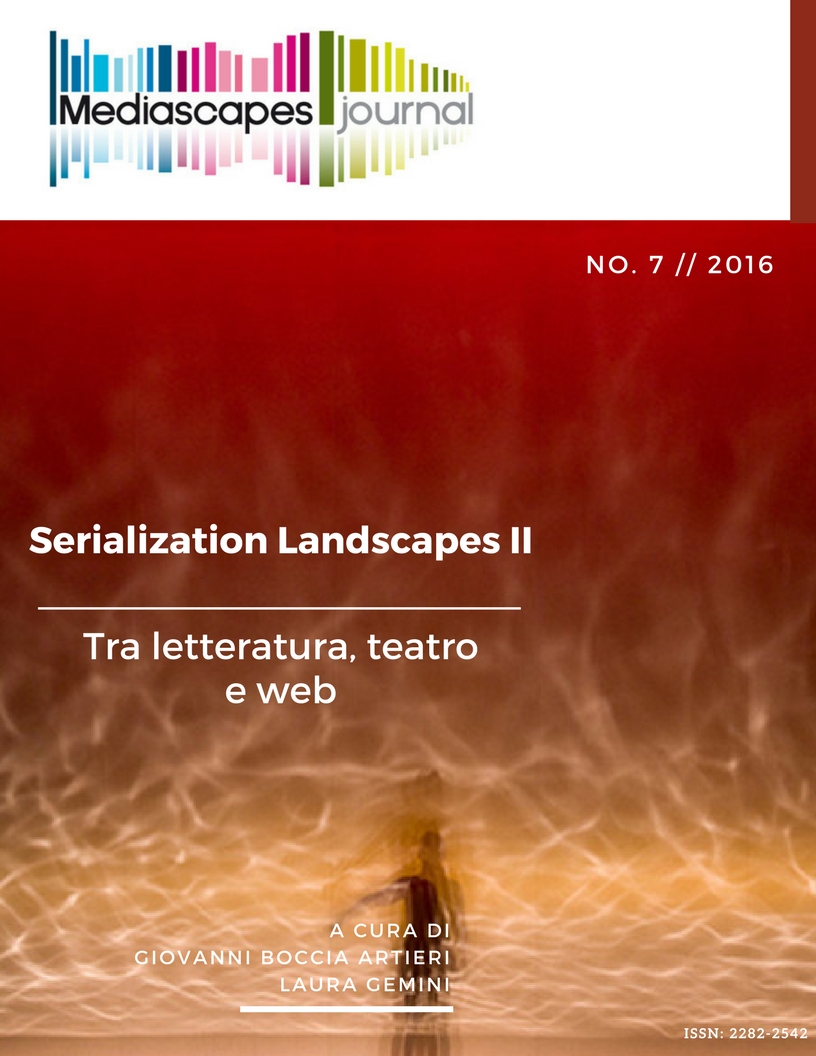Dal collasso dei contesti alle Trash Star: la serializzazione nella costruzione degli idoli ridicoli di YouTube Italia
Abstract
The article explores the relationships between seriality and the ways in which YouTube contents are constructed and consumed, focusing in particular on how even the most trivial, ridiculous or “trash” part of the platform’s culture is influenced by the serial format. More specifically, the essay will examine the current trend of YouTube’s “Trash Star”, namely ordinary people who become famous online because of their being ridiculed by networked publics. This phenomenon will be analyzed along three main directions. In the first place, it will be noted a passage, in the YouTube landscape, from a kind of ridiculing based on a misalignment between performer and public, to an incremental tendency of the ridiculed to cure their performance in accordance to audiences expectations. Second, the reactions to the derisive exposure will be taken into account. Finally, the article will examine the modalities in which serialization enters into the organization of online presence, distinguishing between auto-serialization – when the YouTuber produces himself as a series to manage his presentation – hetero-serialization – when users reiterate the YouTuber’s image in parodies and remixes – and meta-serialization – when the flux of events in the YouTube community is organized as a unique interconnected and serialized narrative system.
.
Downloads
Published
How to Cite
Issue
Section
License
Mediascapes Journal is published under a Creative Commons Attribution Licence 4.0.
With the licence CC-BY, authors retain the copyright, allowing anyone to download, reuse, re-print, modify, distribute and/or copy their contribution. The work must be properly attributed to its author. It should be also mentioned that the work has been first published by the journal Anuac.
Having published these contributions for the first time, Mediascapes Journal will have the right to publish them integrally or partially as reprints or possibly as part of a thematic issue, in both digital and printed format.
It is not necessary to ask further permissions both to author or the journal.


